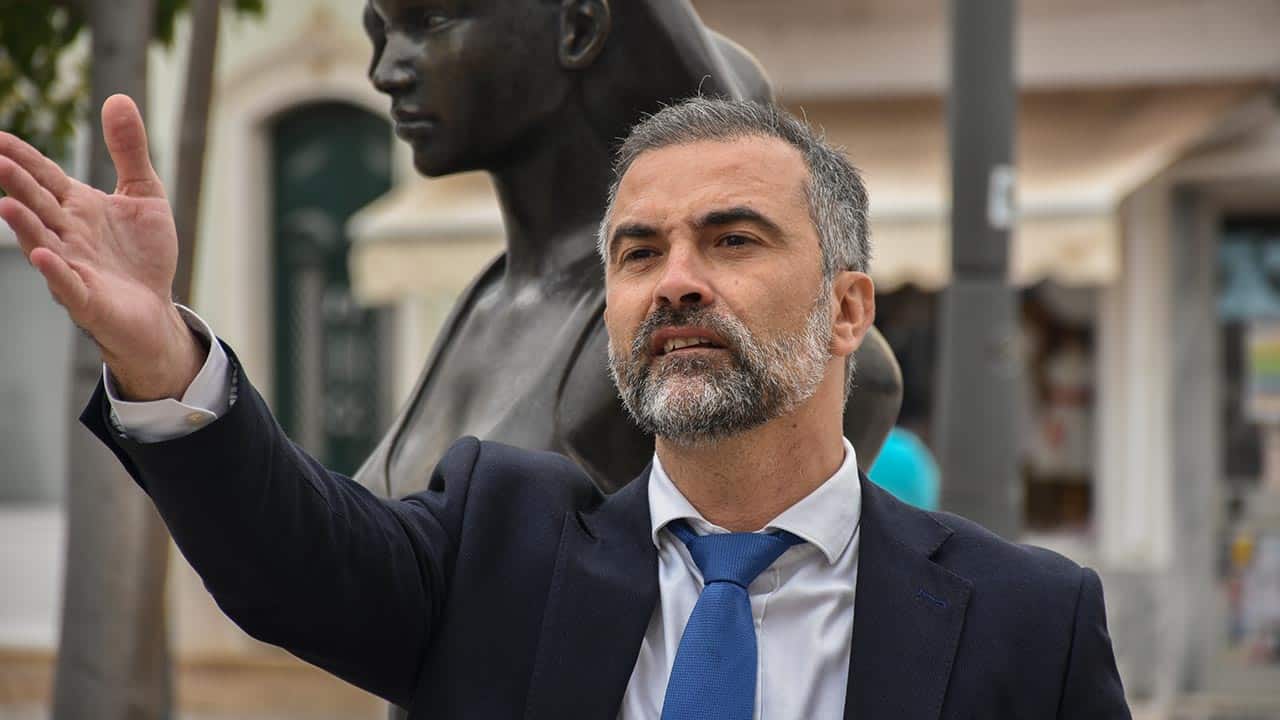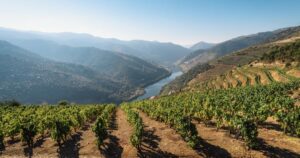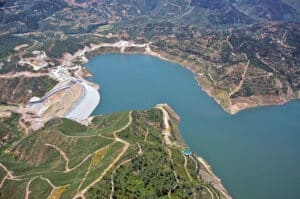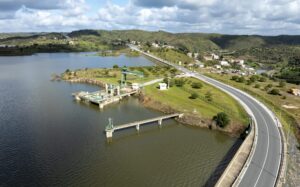Region cannot see its needs being properly addressed
With a failing government presenting a ‘grand 15-year strategy for the nation’s future management of water’ last Sunday (see P2), media reports have said the “water sector generally” has given the “Água Que Une/Water That Unites” plan the thumbs up. But representatives of municipalities and tourism in the Algarve are not so convinced.
For a start, the linking of Algarve dams to Alqueva (to allow for replenishment during times of water scarcity) is not even mentioned – when the minister of environment specifically referred to this possibility during a recent visit to the region.
André Gomes, president of Turismo do Algarve, stresses that “any strategy is positive”, but this one could see “greater weight” given to the south of the country, in terms of the nearly 300 measures outlined.
As ECO online explains, for the Algarve, “an investment of €350 million is planned in medium-term measures to increase the resilience of the supply system, with a horizon of 2025 to 2035, and the PRR (recovery and resilience plan funded by Brussels) as a source of funding – and a long term programme to increase the availability of water in the public supply system, costed out at €45 million, to be carried out between 2035 and 2042.
“There is also a budget for the modernisation of the Silves, Lagoa and Portimão hydro-agricultural scheme (€12 million), and its completion in Alvor (€45 million), the production of water for reuse (€33 million by 2026)*, and finally the feasibility study for the Foupana and Alportel dams”.
Looking at the strategy from a purely Algarve level, António Pina, president of AMAL, the Intermunicipal Community of the region, is fairly scathing. “As far as the Algarve is concerned, this strategy adds nothing,” says Pina, admittedly a PS Socialist stalwart and, therefore, unlikely to endorse anything coming from a minority PSD government.
But Pina’s overall contention holds water (no pun intended): the document is little more than a PowerPoint presentation, rolled out “in haste for the period ahead (of possible elections), and a work that is still in its infancy”, bearing in mind that a number of the measures do not have an identifiable source of funding.
Looking at the strategy from a broader perspective, Pina considers the government has simply taken measures that the Algarve itself adopted (like reusing wastewater/fixing leaks and faults in the system) and extended them to the wider territory.
Further afield, even Firmino Cordeiro, director general of AJAP, the Association of Young Farmers in Portugal, thinks more could be done – and a great deal faster, given the effects of climate change, and habitual water scarcity in certain regions.
Obviously, there are those who are more enthusiastic: Filipe Duarte Santos, president of the national council for the environment and sustainable development, says he believes the “essential in terms of water resources” has been covered, and “great importance” given to the issue of efficiency “with a response to the large losses that currently occur in the network”.
Environmental association ZERO has also welcomed much of the strategy. But it has doubts when it comes to the whole idea of building new dams, bearing in mind these carry “enormous environmental impacts” and risk, certainly in the south, never being properly filled.
Zero’s main contention is that the bulk of investment should be in improving efficiency, and only after that has been approved should other measures be considered/enacted.
*Production of water for reuse appears to be a reference to the desalination plant that is costing over €108 million, most of which is due to be financed by Brussels.



















